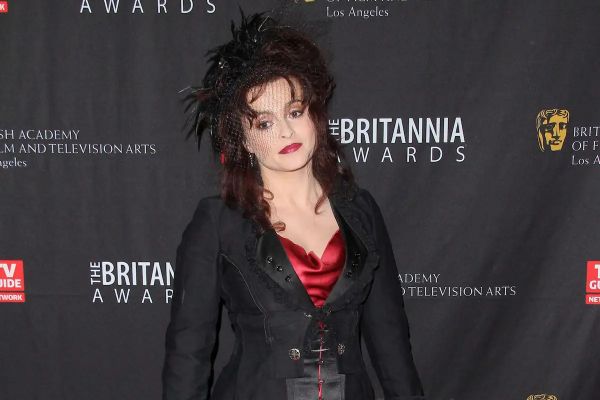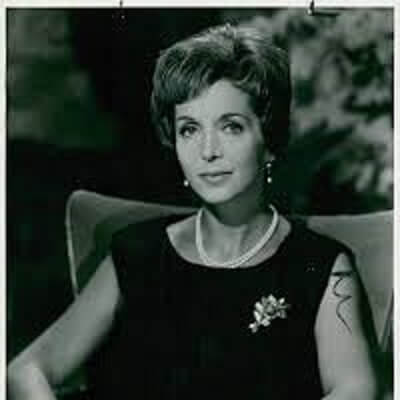If you are under 45 years old, you have likely never heard of Noele “Nolly” Gordon. But you’ve likely heard of A-list actress Helena Bonham Carter, It’s A Sin author Russell T. Davies, and Doctor Who creator Steven Moffat.
The duo has joined forces for a three-part drama on the rise and fall of Nolly, a TV pioneer and renowned star of the now-defunct soap serial Crossroads.
Nolly portrayed Meg Mortimer/Richardson, the proprietor of the Crossroads motel, from 1964 to 1981, when she was suddenly fired. Fans of the nation’s soap operas were stunned by the news. In its heyday, 15 million weekly viewers had tuned in to see Nolly’s show. The show focused on her.
Having written for soaps early in his career – he even penned a trial script for Crossroads shortly before it was canceled in 1988 – Davies was eager to give the late actress one more moment in the spotlight and investigate why she was abruptly canceled.
“In the industry, she is described as a diva and a bit of a monster,” he says.
“However, when I chatted with the cast, I found the reverse to be true. They cherished her. Someone who was a very powerful and successful woman is now referred to as a bitch. How does that happen automatically? It’s horrifying. She is fierce, powerful, and opinionated, yet you wouldn’t use those adjectives to describe a man.”
The creator of the soap opera, Reg Watson, “created Crossroads around her,” as Bonham Carter, who plays the title character on the ITVX series, reveals.
In 1974, he left the Midlands-based soap opera to return to his native Australia, where he became famous for creating Neighbours.
“They wouldn’t have fired her if Reg was still employed,” adds Davies.
Without revealing too much, Bonham Carter believes that ATV, the producers of the Midlands show, was maybe “threatened” by Nolly’s influence.
“She was more intelligent than every suit. She was able to make the show successful. She was literally in charge of the situation. If it were now, I believe she would have rapidly become a director and producer.”
Loose Women
And based on her resume, it is extremely plausible.
As a young woman in 1938, Nolly was credited with being the first person whose moving image appeared on color television.
In addition to her early acting jobs, she was a pioneer, anchoring the first ITV chat show, Tea with Noele Gordon, and then Lunchbox. As the anchor of Midland Sport, she was ITV’s first female sports broadcaster. She also created other shows and became an ATV executive.
Additionally, the celebrity was the first woman to interview a British prime minister (Harold Macmillan). Her talent was extensive and varied.
“She would have been such a loose woman,” Davies exclaims, referring the current ITV1 midday program.
Bonham Carter replies,
“She may have ended up like Fiona Bruce.” “I could picture her effortlessly directing Question Time.
“Characteristically, she was quite masculine, but this may have been necessary for her to succeed in a man’s world. She did not play up her femininity while loving males.”
Nolly was 61 years old when she was laid off from Crossroads.
“I believe she was cut short in her prime,” Bonham Carter says.
“I feel the want to champion her, as I do every woman of a certain age. We may be terminated because we are regarded too old. Wait a minute, we can’t be useless and outmoded; we’re just learning how to do everything!”
Obviously, aging was not the only challenge a lady would face.
London-born Nolly never married and had no children, which was unusual at the time; nonetheless, her loving on-screen children Jill (Jane Rossington) and Sandy (Roger Tonge) called her mother to offset as well.
And she had wonderful pals, including her co-star Tony Adams (whom Augustus Prew portrayed in Nolly) and the comedian and television host Larry Grayson (Mark Gatiss).
“In episode three, she gives a speech in which she states that if you are a woman who is not married and does not have children, you are considered unusual or peculiar. And there is a nameless army of silent women “Bonham Carter reveals.
After being fired, Nolly went on to star in Gypsy in Leicester and a number of other plays. Her career, however, never indeed recovered.
“Things have since evolved. Raquel from Coronation Street (now Sarah Lancashire from Happy Valley) is currently the most popular figure on British television “Davies says. In the 1970s and 1980s, however, it was far more difficult to avoid typecasting.
Would he, as a lover of soap operas, ever contemplate developing one himself?
“No, no, no – to tell you the truth, I get asked once a week!” he laughs.
Bonham Carter explains that she could never be in a soap opera because she “would lack the concentration.” “I am fairly easily distractible.
Even at the conclusion of The Crown (in which she portrayed Princess Margaret for two seasons), we’ve reached the lowest depths; it’s time for someone else to take over!”
Surprisingly, given her resume, the actress admits she is anxious about portraying another actual person.
“There is an obligation… I suffer from imposter syndrome, so I am motivated to succeed. I completed so much research on Noele Gordon that I could play Mastermind. And we were able to watch an abundance of Crossroads!
“There are so many major situations – the anxieties never go away, and neither does your confidence… mine can suddenly vanish down a drain.”
Does she believe there have been significant changes for women in the industry?
“It is wonderful that more women are producing and creating tales.
“I remember my first trip to the United States. I was 19 or 20 years old. I felt very inadequate since my legs had not grown for six years. I was not especially sexual. I did not have the proper physique. I simply believed I had no job options.
“In retrospect, I wondered why on earth I was so concentrated on the fact that I did not have the ideal physique. As a result, there were few jobs available for a number of years.
However, this is why I chose to act in costume dramas, as I believed they were the roles with the best writing.”
Today, Bonham Carter is expected to appear more frequently on the small screen.
“The film industry is sadly disappearing,” she states. “We’ve barely entered the theater. Television is an excellent new medium. This is where the best characters can be found.”
Also Read: Jonathan Groff, Who Is Out Gay, Discusses A Relationship Gone Wrong





